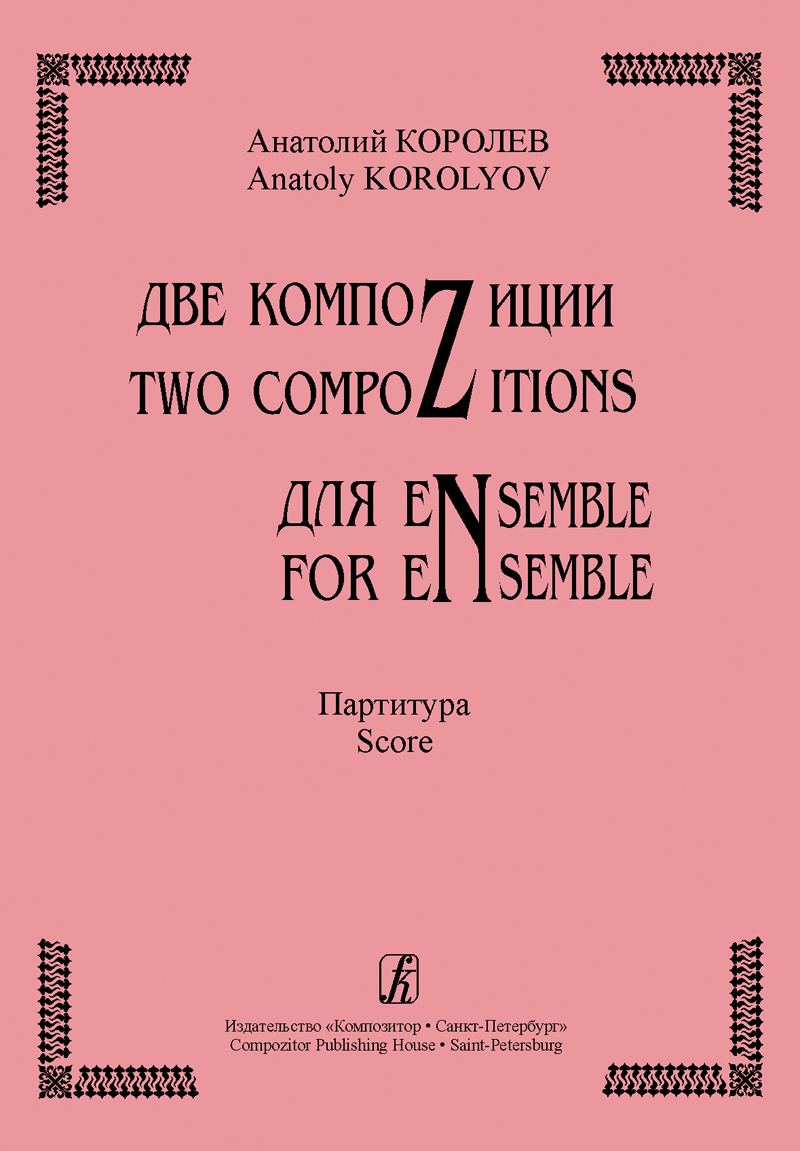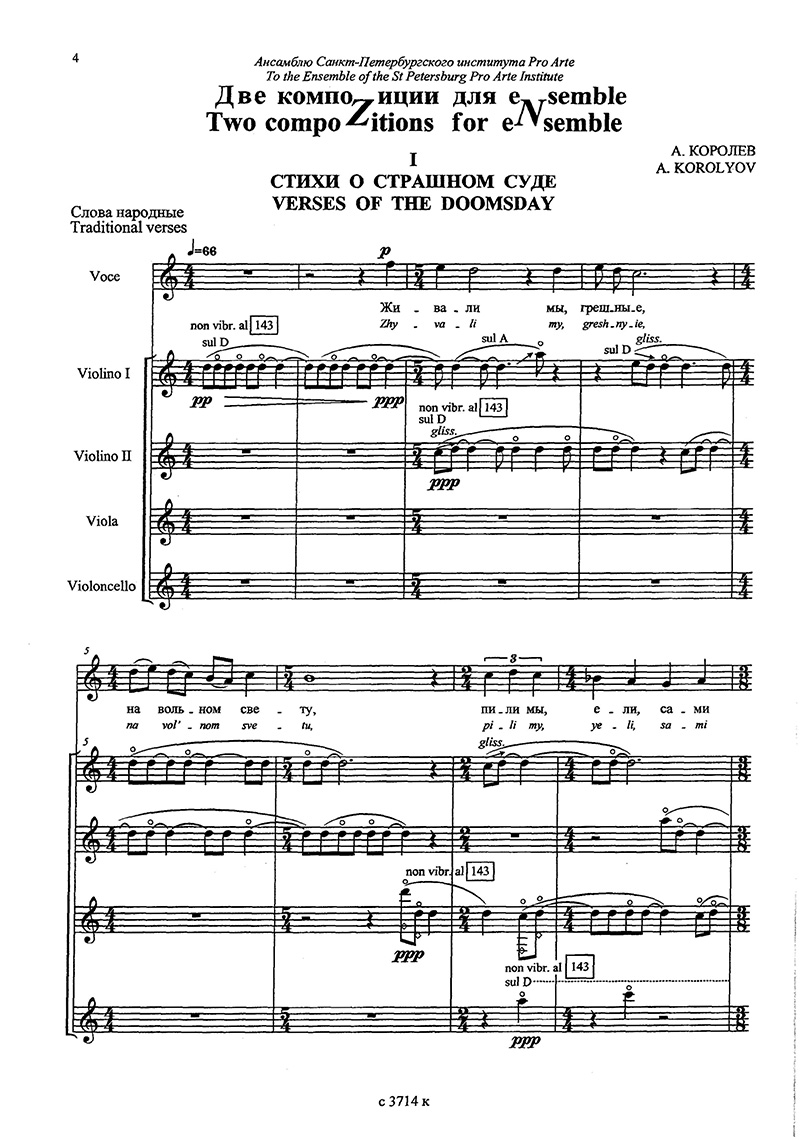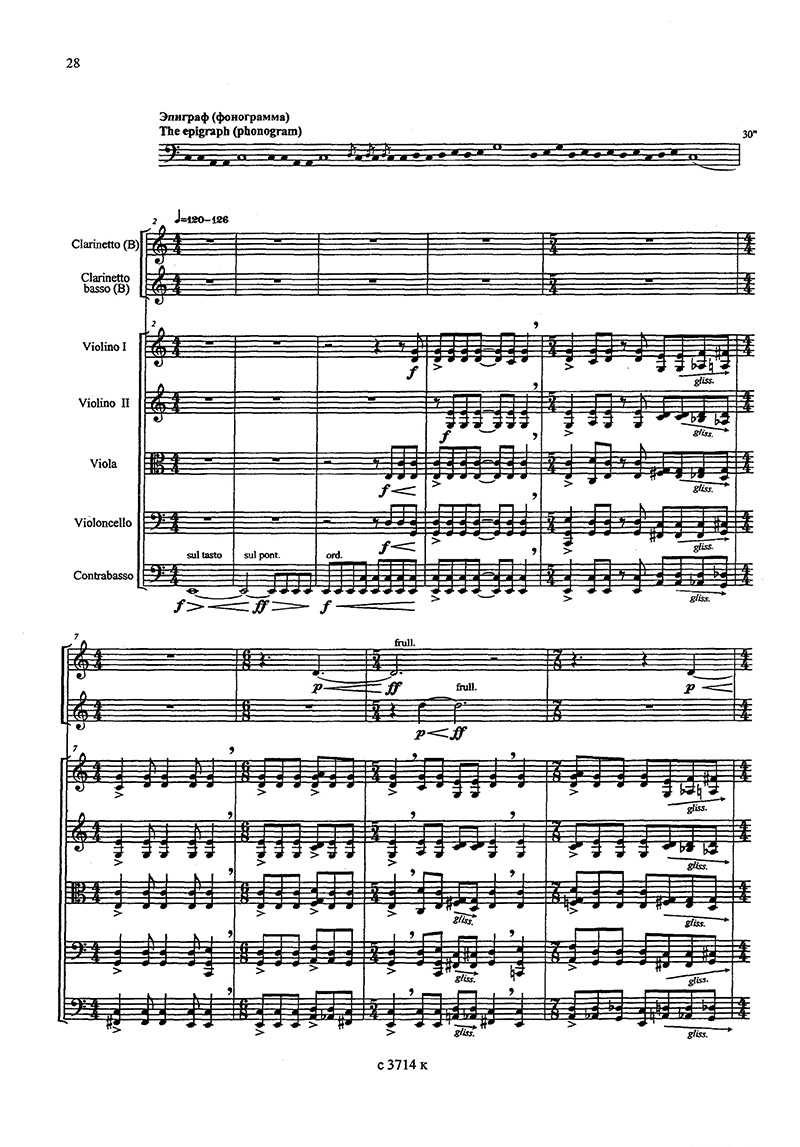
Korolyov A. Two CompoZitions for eNsemble. Score+CD
- Author:
- Korolyov A.
- Author (full):
- Anatoliy Korolyov
- Title (full):
- Two CompoZitions for eNsemble. Score. CD with phonogram is attached
- Number of pages:
- 74
Anatoly Aleksandrovich Korolyov (born in 1949) is one of the most original and diverse among the modern composers, graduate of the Petersburgian conservatoire, where he studied choir conducting and composition at Vladimir Tsytovich and Boris Arapov during the post-graduate education. Anatoly Korolyov is the Petersburg Conservatoire professor, honoured art worker of Russia. Korolyov is the author of symphonic, cantata-oratorio, choral, organ, chamber-vocal and instrumental compositions. He practises the sphere of electronic music. Among his most significant works there are the symphonic poem “About the Grass, Stones and Water”, oratorio to the text of the Old Russian chronicles and legends “Living of the Prince Vladimir”, choral concerto “Glory to God for Everything” to the words of Grigory Petrov’s acathyst, Adagio for choir and string orchestra, Grand Chant for the strings, clavecin and percussion, electronic composition “shalyapin wav”. Among Korolyov’s compositions edited by the Compozitor Publishing House • Saint-Petersburg there are choral cycles, “Letters to the Roman Friend” to the verses by I. Brodsky, Three Poems by Iosif Brodsky and Litany (all dating 2000), so as the “Little Guide Along the Russian Folk Songs”(1990), Partita (1995) and Four Music Moments (1997).
Two compoZitions for eNsemble include
“Verses of the Doomsday” for soprano and string quartet to the traditional texts. The author works out the intonations of the folk spiritual song. This genre seemed to be not enough intellectual for the composers of the 20th century. The quasi-citations from St.John’s revelations neighbours here with simple everyday contemplations, hence the awestruck authenticity of the interpretation. The vocal line imbibed the intonations peculiar for folklore prototype, meanwhile minimalistic turns prevail. The strings are neither accompaniment, nor counterpoint. The quartet score lacks chords, basso or definite rhythm. This is the same song (soprano part), however, reverberated in a strange mirror, that transforms the word and intonation to the variation of timbre and facture.
“Mahakhala (Battle at Lozovaya Station)” for clarinet, basso-clarinet and string quintet — the second movement of the diptych reminds of the novel “Chapayev and Emptiness” by Viktor Pelevin, though there is no precise programme in it. Both the musical composition and the novel manifest mocking and serious allusion to Buddhism and symbolism. Mahakhala is the god of war in the Northern Buddhism (it's not indicated directly in the novel, although being implicated there in many episodes). Mahakhala is also the ritual in honour of this god (the customary accompaniment is not inserted here, though being present invisibly). Battle at Losovaya Station is the significant event in a man's life — no one may avoid it.
- Author
- Korolyov A.
- Author (full)
- Anatoliy Korolyov
- Title (full)
- Two CompoZitions for eNsemble. Score. CD with phonogram is attached
- Number of pages
- 74


